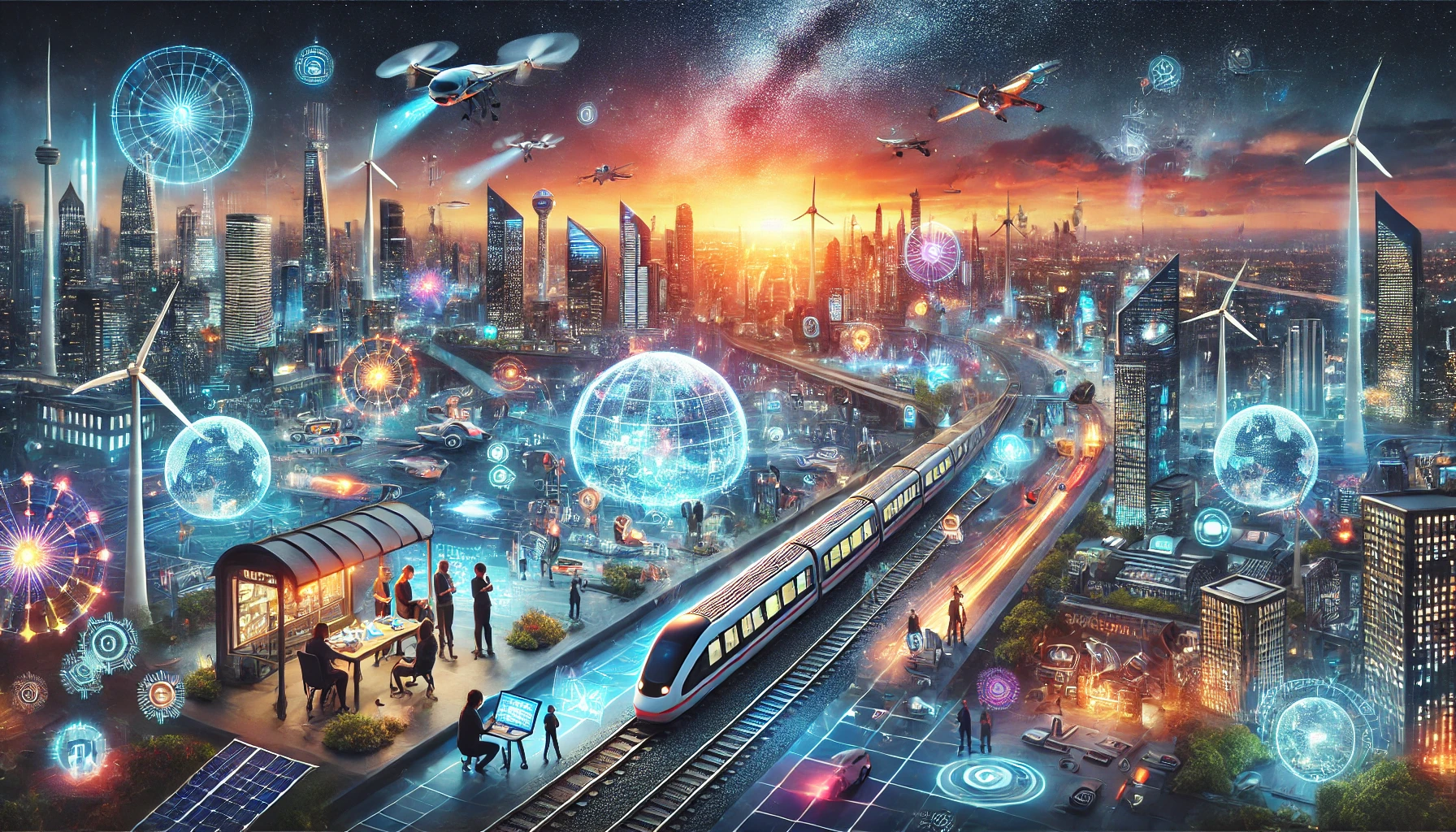Subtotal $0.00
In the 21st century, technology has become the cornerstone of global development, propelling humanity into a future of unprecedented possibilities. From artificial intelligence to renewable energy, the innovations emerging across the globe are not only reshaping industries but also addressing some of the most pressing challenges of our time. Let’s explore how these cutting-edge advancements are driving the future and transforming the world we live in.
The Era of Artificial Intelligence and Automation
Artificial Intelligence (AI) is undoubtedly at the forefront of technological innovation. From virtual assistants like Alexa and Siri to sophisticated algorithms powering self-driving cars, AI is revolutionizing the way we live and work. Companies are leveraging machine learning to optimize processes, predict trends, and enhance decision-making. In healthcare, AI is being used to diagnose diseases faster and more accurately, while in education, personalized learning platforms are creating tailored experiences for students.
Automation, another key player, is transforming industries by improving efficiency and reducing costs. Robotics in manufacturing, for instance, has streamlined production lines, while drones are revolutionizing logistics and delivery services. These advancements are not just about convenience—they are redefining the possibilities for innovation and productivity.
Breakthroughs in Renewable Energy
As the world grapples with climate change, renewable energy technologies are lighting the way to a sustainable future. Solar panels and wind turbines are becoming more efficient and affordable, enabling countries to transition from fossil fuels to cleaner energy sources. Innovations like floating solar farms and advanced battery storage systems are further expanding the potential of renewables.
Additionally, smart grids and energy management systems are optimizing electricity distribution, reducing waste, and empowering consumers to take control of their energy usage. These developments are crucial for creating a greener planet and ensuring energy security for generations to come.
The Revolution of Biotechnology
Biotechnology is making headlines with breakthroughs that were once the stuff of science fiction. Gene-editing tools like CRISPR are opening doors to curing genetic disorders, while advancements in synthetic biology are paving the way for sustainable biofuels and biodegradable materials. In agriculture, biotech innovations are enhancing crop yields, improving food security, and reducing the environmental impact of farming practices.
Moreover, personalized medicine is becoming a reality, with treatments tailored to an individual’s genetic makeup. These innovations not only improve patient outcomes but also mark a significant step forward in the fight against diseases.
Transformative Connectivity: 5G and Beyond
The rollout of 5G networks is unlocking new dimensions of connectivity, enabling faster communication and supporting the growth of the Internet of Things (IoT). From smart homes to autonomous vehicles, the possibilities of 5G are boundless. It’s not just about speed—it’s about creating a seamless ecosystem where devices and systems can interact in real time.
As 6G looms on the horizon, researchers are already exploring how next-generation networks can enhance augmented reality (AR), virtual reality (VR), and other immersive technologies. The future of connectivity promises to be more inclusive, enabling remote areas to access the digital world and bridge the global digital divide.
Space Exploration: The New Frontier
Space technology is no longer confined to government agencies like NASA. Private companies such as SpaceX, Blue Origin, and Rocket Lab are democratizing space exploration, making it more accessible than ever before. Satellites are transforming communication, navigation, and weather forecasting, while space tourism is becoming a reality.
Moreover, missions to Mars, lunar colonization, and asteroid mining are paving the way for a multi-planetary future. These advancements are not only expanding our horizons but also fostering international collaboration and innovation.
Challenges and Ethical Considerations
While the pace of technological advancement is exhilarating, it also raises critical challenges. Issues like data privacy, cybersecurity, and ethical AI usage must be addressed to ensure that technology serves humanity responsibly. Policymakers, businesses, and researchers must collaborate to establish frameworks that balance innovation with accountability.

